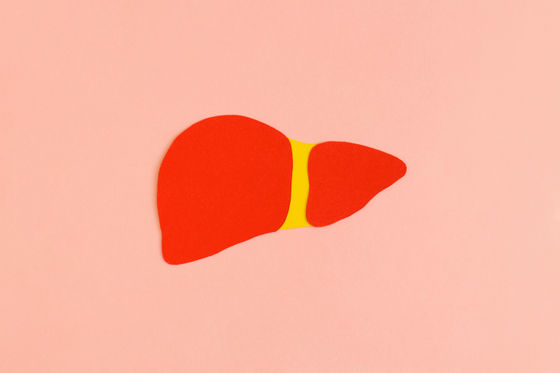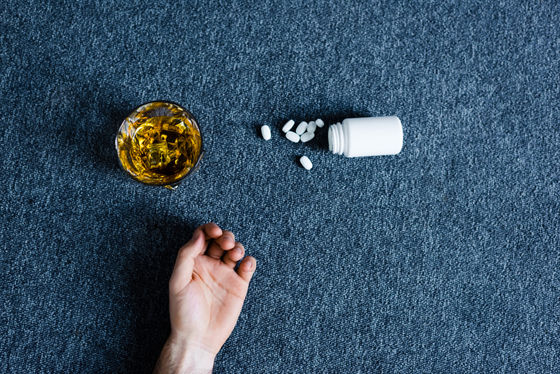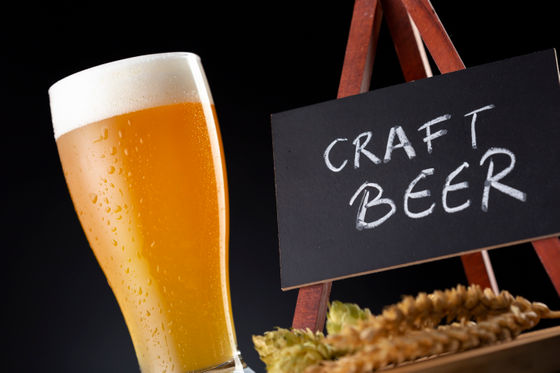What happens if you take drugs and alcohol together?

Many medicines, such as cold remedies, have a cautionary note that says, 'Do not take with alcohol,' so people who like drinking or who have a habit of drinking at night should be careful. A pharmacy expert has answered the question, 'What happens if you take alcohol and drugs together?'
Drinking alcohol this Christmas and New Year?
According to Neil Wheat and Jessica Pace, pharmacologists at the University of Sydney, Australia, when you take a drug, it travels from your stomach to your liver, where it's metabolized and broken down before it enters your bloodstream. . Therefore, drugs are prescribed in doses that are assumed to be metabolized in the liver.
Similarly, alcohol is broken down in the liver, so taking alcohol at the same time as taking a drug affects how much the drug is metabolized. For example, some drugs are metabolized so much that not enough ingredients reach the bloodstream to have the desired effect. Conversely, if the metabolism of the drug slows down, more components than expected will flow into the blood, and there is a risk of overdose.

Wheat et al. summarized the following four problems that occur when taking drugs and alcohol at the same time.
1: Drugs + alcohol = drowsiness, coma, death
Depending on how much you drink, alcohol has a
Drugs of particular concern in such cases are drugs for depression, anxiety, schizophrenia, pain, sleep disorders such as insomnia, allergies, and colds and flu. Wheat et al. said alcohol should not be combined with medications for these illnesses and conditions.
◆ 2: Drug + alcohol = more powerful action
Some medicines are more effective when mixed with alcohol. So, for example, the sleeping drug Zolpidem should not be taken with alcohol.
Zolpidem is very rarely associated with bizarre behaviors during sleep, such as sleepwalking called sleepwalking, sleep - related eating disorder where you wake up to eat while you are asleep, and driving a car while asleep. Side effects such as sleepwalking may occur, but this side effect is more likely to occur especially if you drink it with alcohol.

◆ 3: Medicine + craft beer = high blood pressure
Some drugs only interact with certain types of alcoholic beverages. The alcohol is so-called
These alcoholic beverages contain a substance called tyramine , which causes hypertension attacks, but tyramine is a substance that exists widely in nature and is normally decomposed in the body, so it does not cause any harm.
However, a class of drugs called monoamine oxidase inhibitors prevents the body from breaking down tyramine, which can raise tyramine levels and cause dangerously high blood pressure.
Examples of monoamine oxidase inhibitors include depression drugs such as phenelzine, tranylcypromine, and moclobemide, the antibiotic linezolid , the Parkinson's drug selegiline , and the cancer drug procarbazine .

◆ 4: In some cases, there is an effect even if you do not drink at the same time
Not only are drugs affected by alcohol, but alcohol and drugs can interact. Symptoms include nausea and vomiting, flushing of the face and neck, shortness of breath, dizziness, palpitations, and a drop in blood pressure.
These symptoms may also occur when alcohol is consumed after stopping treatment. For example, if you are using
Acitretin , which is used to treat skin diseases such as psoriasis, is an example of a case in which alcohol changes the components of a drug in the body. When acitretin is ingested, it is converted into another component called etretinate before it is excreted from the body, but when alcohol is consumed, the amount of etretinate in the body increases. Etretinate can cause birth defects, so women who are planning to become pregnant should avoid alcohol for two months after stopping the drug.

Contrary to the popular belief that alcohol should not be taken with alcohol, there are some drugs that are safe to take together.
For example, alcohol doesn't directly affect the effectiveness of birth control pills, so it's generally safe to use them together. However, if you drink so much that you lose yourself, you may forget to take the pill regularly, and if you drink too much and throw up the pill with your stomach contents, you risk an unplanned pregnancy. should be careful as it increases.
In addition, since the hormones contained in contraceptives also affect the response to alcohol, it seems that there is also an unexpected effect of getting drunk faster and getting drunk longer.
Also, antibiotics are sometimes said not to be taken with alcohol, but this is limited to metronidazole and linezolid. Therefore, it is generally safe to take antibiotics and alcohol at the same time. However, both antibiotics and alcohol put a strain on the stomach and body, so Wheat et al.
Related Posts:







